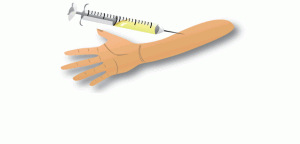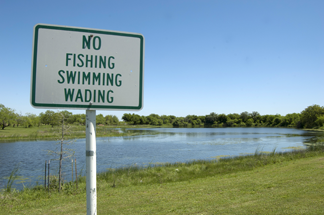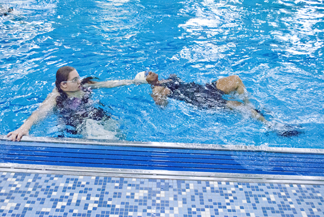By Bethany Peterson/editor-in-chief
Six SE Campus students and faculty will receive more

testing to determine if they have active tuberculosis, a Tarrant County Public Health representative said.
The first of two tuberculosis tests was offered to the 259 students and faculty who shared classes last fall and this spring with a former SE Campus student currently being treated for active tuberculosis, said Gerry Drewyer, division manager of the Tarrant County Public Health’s tuberculosis elimination program.
Of those 259 people, 126 received the skin test administered by the health department on SE Campus April 3, and 105 returned to have the skin tests read April 5.
Free skin tests will also be available April 17 for those who missed the first tests.
Those tests will be read April 19.
“The testing conflicted with the storm that we had, which I would estimate was the main reason that we didn’t get all of them on the first go-round,” Drewyer said. “I think we will probably pick up the rest through the school testing.”
Drewyer stressed that a positive skin test does not mean a person has active, contagious tuberculosis.
A positive skin test means the person has latent or sleeping, non-contagious tuberculosis, she said. The bacteria can lay dormant for years or never activate at all.
“Once an individual is infected, about 90 percent will never ever have to worry,” Drewyer said. “They live their life with that bacteria in their system with no signs or symptoms.”
However, tuberculosis can activate whenever the immune system is weakened by age or disease, allowing the bacteria to begin spreading. To reduce the risk of developing active tuberculosis, the health department offers a medication treatment.
Treatment for active tuberculosis is mandatory and enforced by the local health department. Treatment for latent tuberculosis is not required but is highly recommended to reduce future risk.
Those with a positive skin test will go to a health department doctor April 20 to receive a chest X-ray.
Cost for the next round of testing will vary.
“The ones that came back positive will be asked to bring proof of income into the health department. It is done on a sliding scale according to their income,” Drewyer said. “We never ever turn anyone away for lack of ability to pay.”
Those considered at high risk were notified by letter and by email. They were determined to be at high risk because they had enrolled in a class with the infected student regardless of whether or not they ever attended that class, said Rita Parson, coordinator of public information services.
“It is not necessary to test everyone because the exposures are not close enough for us to consider the disease to have developed,” said Dr. Woody Kageler, TCC’s medical advisor and director of TCC’s allied health department.
If another active case is confirmed, testing would begin for students and faculty who were in prolonged close contact with the new case, Kageler said.
The former student with the confirmed case is receiving treatment and doing well, Drewyer said.




























